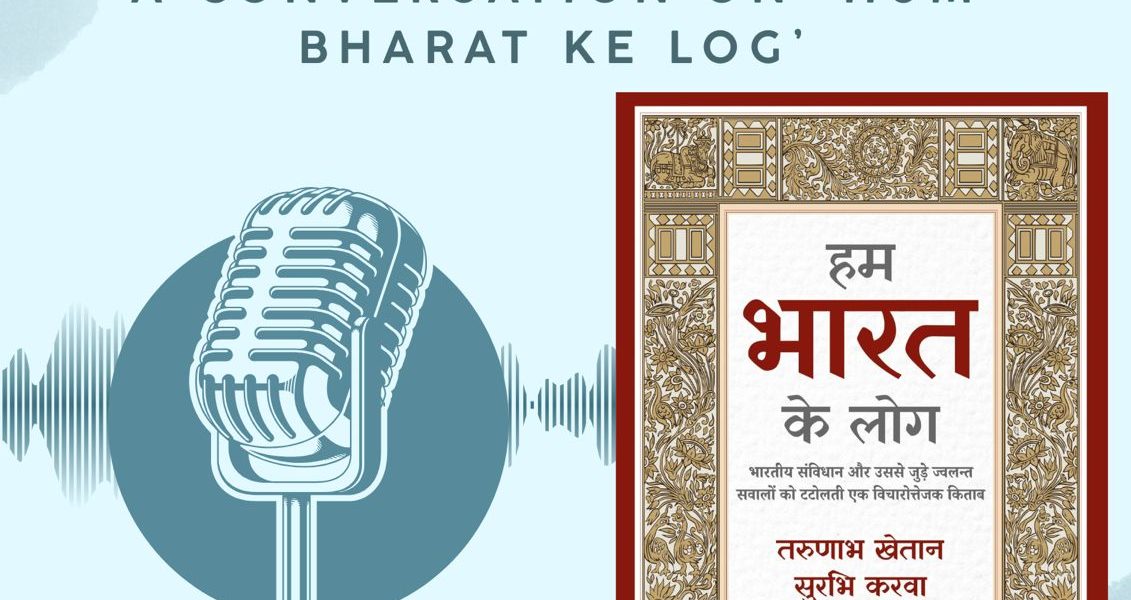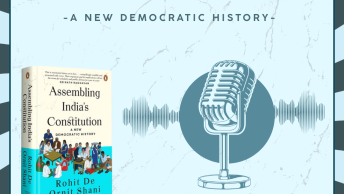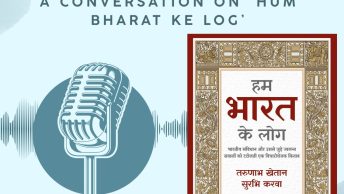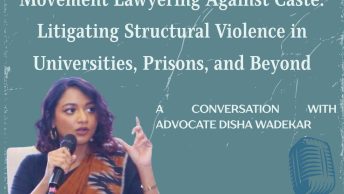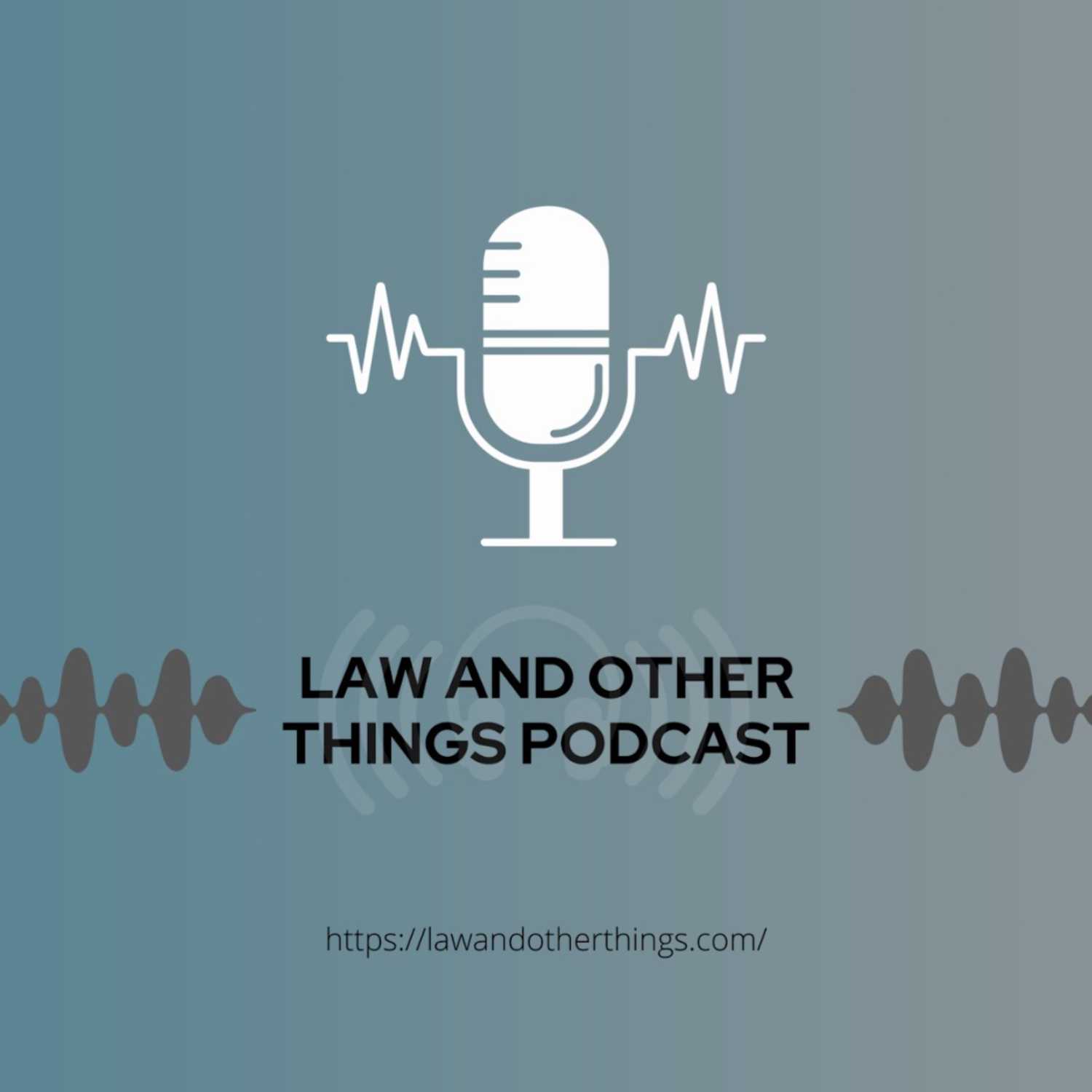Jeetendra:
Hello and welcome back to the Law and Other Things podcast series. I’m Jeetendra, and this is Part II of our conversation with Professor Tarunabh Khaitan and Surbhi Karwa on their new book.
In Part I, we discussed how the book brings the Indian Constitution closer to ordinary citizens through language, accessibility, and civic imagination. We also explored its inclusive prism, particularly how it reinterprets socialism, secularism, and the rule of law in refreshing and relatable ways.
In this part, we pick up where we left off, to discuss democracy, institutions, and the lived importance of constitutionalism.
Rethinking Democracy Beyond the Ballot Box
Jeetendra:
We often learn in school that democracy is “government of the people, by the people, for the people.” But as you point out in your book, democracy cannot be reduced to voting once every five years. In today’s India, what does it mean to rethink democracy beyond the ballot box — so that citizens can participate more meaningfully than just through elections?
Surbhi:
That’s a great question. As we discuss in the book, democracy is often invoked to justify almost any action by those in power, the claim being, “We were elected, so we have democratic legitimacy.” But that understanding is incomplete.
Democracy is not mere majoritarianism. Especially in systems like India’s, with the first-past-the-post model, a government can come to power with only 35–40% of the vote. So, democracy cannot simply mean whoever has the numbers governs as they please.
True democracy requires certain preconditions, a free media that scrutinizes power, an effective opposition that can function without financial or legal suppression, and institutions that ensure fair competition. Otherwise, we risk a one-sided game where the rules are constantly rewritten in favour of the ruling party.
As we note in the book, even countries like Singapore or China hold elections, but that alone doesn’t make them democracies.
Tarunabh:
To build on that, democracy demands both space and fairness. Every political or social group must have a genuine chance to win power once in a while. If some groups are structurally excluded and always lose, that system cannot truly be called democratic.
Democracy also has a temporal dimension. It’s not only about “the people” today, but also about future generations. No current majority can abolish or compromise democracy for tomorrow’s citizens. That’s why we need independent courts, election commissions, and media, to safeguard democracy as an ongoing project, not a one-time event.
Digital Debate and the Challenges of Free Speech
Jeetendra:
You write that debate is the lifeblood of democracy. But much of that debate today takes place online — where conversations can quickly turn polarized or abusive. How can we preserve genuine democratic deliberation in the digital environment while balancing free speech with necessary regulation?
Tarunabh:
It’s an enormous challenge, and not one that any single country can solve alone. Social media platforms operate globally, and meaningful regulation is difficult unless major powers like the US act collectively, which seems unlikely at the moment.
That said, some things are within our reach. We can ensure plural ownership in legacy media, promote editorial independence, and learn from experiments elsewhere, like Australia and the EU, that are trying to hold digital platforms accountable.
Surbhi:
Yes, and part of the challenge also comes from our own laws. In India, people have been charged with sedition merely for liking a post or forwarding a message. These are old problems amplified by new media. If we simply followed long-standing constitutional principles, that speech must incite violence to be punishable, many of these issues would resolve themselves.
Globally too, the digital sphere affects democracy. For example, during Australia’s 2023 “Voice” referendum on Indigenous rights, massive disinformation campaigns influenced voters. So, this isn’t just a legal issue; it’s a democratic one.
Fourth Branch Institutions and Democratic Guarantees
Jeetendra:
One of the most compelling parts of your book discusses “fourth branch” institutions, bodies beyond the legislature, executive, and judiciary that safeguard democracy itself. Why are such institutions necessary, and how might India strengthen them, especially after recent controversies around electoral appointments?
Tarunabh:
India was actually a pioneer in constitutionalizing these guarantor institutions, like the Election Commission, Comptroller and Auditor General, and Public Service Commissions. These bodies were meant to be independent of the ruling party, to protect fragile constitutional norms such as free elections and judicial independence.
Unfortunately, Parliament never enacted laws to make their appointments bipartisan. The Constitution expected such laws, but in their absence, executive discretion has prevailed. Other countries like Sri Lanka have since improved upon our model through independent Constitutional Councils that include both government and opposition voices.
Asking the ruling party alone to appoint watchdogs is like asking the fox to guard the henhouse.
Surbhi:
Exactly. And independence must go hand in hand with accountability. Many commissions, like the Information Commission, are being weakened not through overt capture but through neglect: unfilled vacancies, lack of staff, or inadequate budgets.
Institutions like these need fixed appointment timelines, secure funding, and accountability to bipartisan parliamentary committees, not to the ruling government. Otherwise, they risk becoming ornaments rather than safeguards.
Federalism and Central Overreach
Jeetendra:
Turning to federalism, your book critiques the use of Article 3 during the reorganization of Jammu and Kashmir. How do you view the dangers of unilateral central actions in our federal system, and what safeguards might prevent such overreach in the future?
Tarunabh:
Article 3 originally served a specific purpose, to facilitate linguistic reorganization of states without giving existing states a veto. But keeping it permanent has tilted the balance towards the Centre.
Today, that power feels excessive. We should revisit it, perhaps requiring something closer to state consent or a supermajority amendment for reorganization. Similarly, the power to dismiss state governments should be abolished.
What happened with Jammu and Kashmir was, frankly, a constitutional sleight of hand. The government complied with the letter of the law, but not its spirit, and the Court unfortunately endorsed that. It was, in my view, a fraud on the Constitution.
Democratic Backsliding and Institutional Resilience
Jeetendra:
There’s growing concern globally about democratic backsliding, institutions weakening under majoritarian pressure. How resilient are India’s democratic institutions to such trends, and what reforms are needed to preserve checks and balances?
Surbhi:
The V-Dem Institute’s democracy index shows that India, while still a democracy, has experienced significant declines, described now as an “electoral autocracy.”
This is alarming because India’s democracy has always been an inspiration for the world — proof that democracy can thrive even in a poor and diverse society. The current erosion — especially of media freedom, opposition rights, and fair competition, challenges that legacy.
Tarunabh:
I agree. Modern autocrats rarely abolish democracy outright; they manage it. What we now see is “competitive authoritarianism”, opposition exists but under unfair conditions.
Ultimately, courts and bureaucrats alone cannot save democracy. The true guardians are political actors, opposition parties, civil society, and citizens. Strengthening opposition rights, reforming electoral rules (for instance, adopting ranked-choice voting), and ensuring fair competition are the real defences of democracy.
Surbhi:
Yes, and our Constitution too needs reform. Authoritarianism today is subtle, it doesn’t always announce itself with coups or emergencies. So, we must remain alert to new forms of control, and continually update our institutions to resist them.
Regional Lessons from South Asia
Jeetendra:
Looking comparatively, how does India’s constitutional journey relate to its South Asian neighbours like Nepal or Pakistan? Are there lessons of endurance or caution that cut across the region?
Tarunabh:
Yes, both positive and negative lessons. Across South Asia, democratic instability often stems from constitutional maximalism, when one side tries to monopolize the Constitution. India, so far, has avoided that fate through compromise.
But we’re beginning to forget that culture of accommodation, that Indian ethic of adjust karna, of taking everyone along. It’s what has kept our Constitution resilient.
We can also learn from others: Sri Lanka’s Constitutional Council model, Nepal’s institutional innovations, and Pakistan’s more limited anti-defection law, which once struck a better balance than ours.
Surbhi:
I’d add that beyond law; there’s a lesson in political culture. The 2022–23 people’s protests in Sri Lanka showed how citizens can reclaim democratic space peacefully.
And in India’s own plural traditions, from Sufi Islam to Bhakti egalitarianism, we’ve long recognized that “one nation, one people” is not an Indian idea. Our strength lies in pluralism.
Conclusion
Jeetendra:
Thank you, Professor Khaitan and Surbhi, for this truly rich and layered conversation across these two parts.
We’ve journeyed from the origins of your book to the living challenges of democracy, reminding us that democracy is never a “winner-takes-all” game. As your book beautifully shows, language itself can become a bridge between citizens and the Constitution.
For our listeners: if you haven’t yet read The Constitution and Us, do pick it up. It explains the four principles of the Constitution with clarity, warmth, and simplicity, a book that speaks equally to lawyers and citizens alike.
[Ed Note: The Podcast has been conducted, edited and transcribed by Jeetendra Vishwakarma from the LAOT team and published by Vedang Chouhan.]

